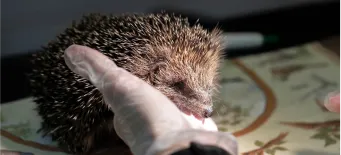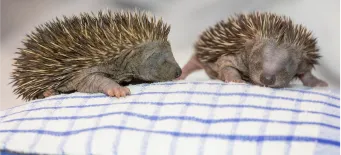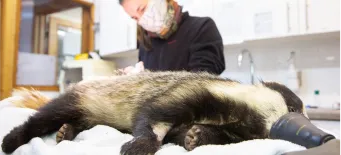A Kite belongs in one place…the sky!
Found alone on the ground, this juvenile Red Kite hadn’t had the best start to life outside of his nest. Taken to a local vets by a member of the public, he was given an initial assessment, before being transferred over to us for further rehabilitation.
On admission, Mr Red Kite behaved like a typical red kite…He played dead.
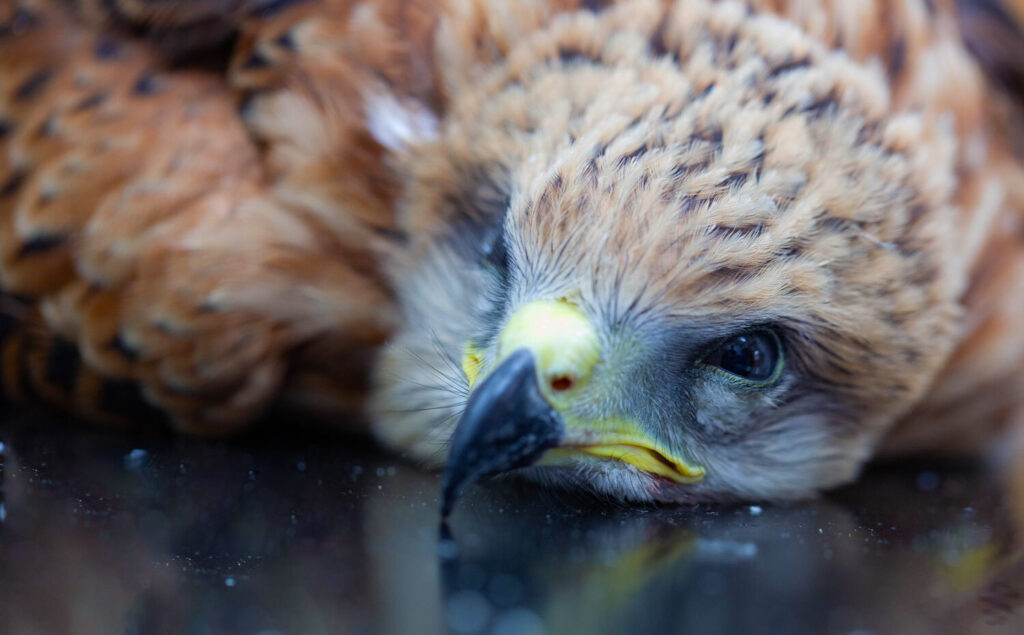
This is a common defence mechanism in birds of prey, and can make it difficult to distinguish between the birds defence, and their actual state of health.
During his full assessment by our vet team, the fledgling, weighing just 740g, was a little underweight for a kite (who usually average about a kilo), and was also showing signs of dehydration. Our vet Marco discovered a lesion on the inside of his throat, that was an initial cause for concern.
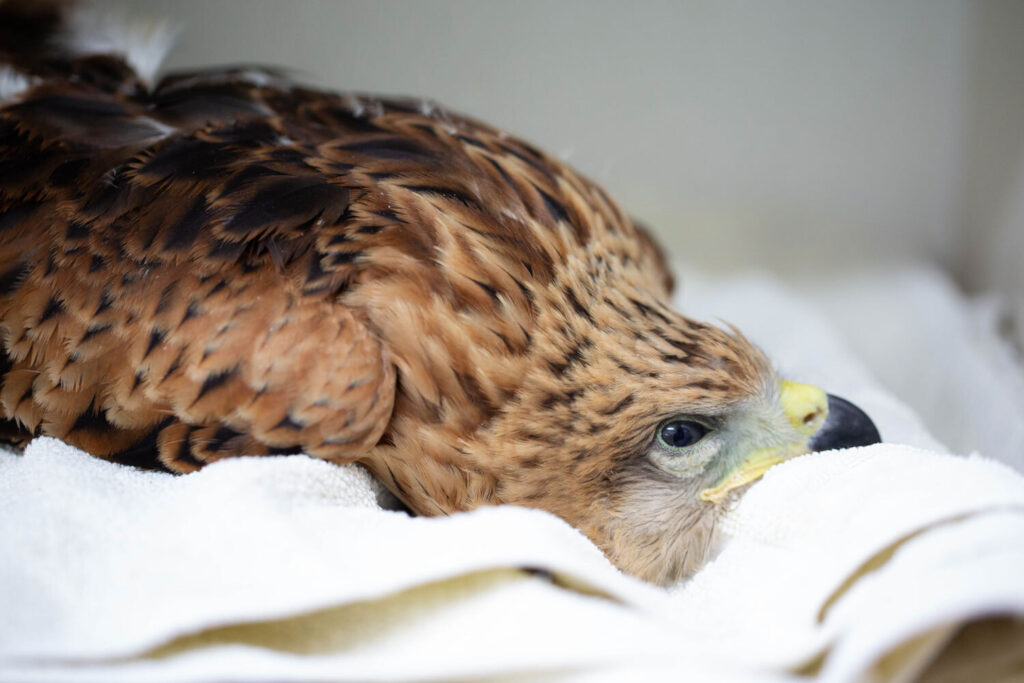
Birds of prey can suffer from infections to the respiratory tract known as Frounce, and is caused by the parasite Trichomonas gallinae. The infection results in white plaques building up in the throat and mouth, and is highly contagious to other birds. In order to check the red kite wasn’t suffering from the condition, a swab was taken of the lesion in his throat, and analysed under a microscope. Thankfully there was no sign of the parasite, and we suspect the lesion may have been caused by something the bird ate.
Other than the lesion to his mouth, Mr kite had no other obvious reasons for being grounded, an x-ray ruled out anything sinister, but when he was placed in to an aviary he showed little to no interest in taking flight.
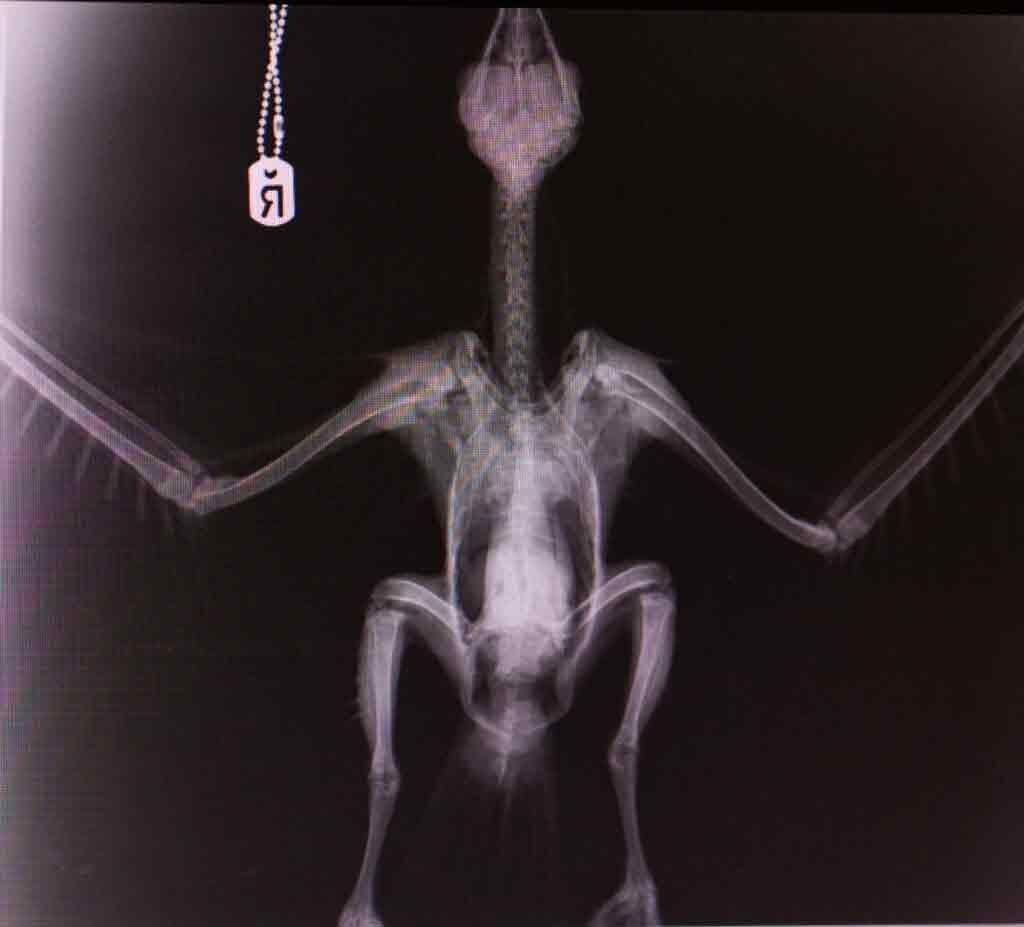
After some further investigations, that included faecal testing, to ensure there were no nasty parasites bothering Mr Kite, he was moved into one of our larger bird of prey aviaries, to provide him with some privacy, and opportunity to take flight in his own time. This was partially due to the fact that every time we’d encourage him to take flight, he’d play dead instead…
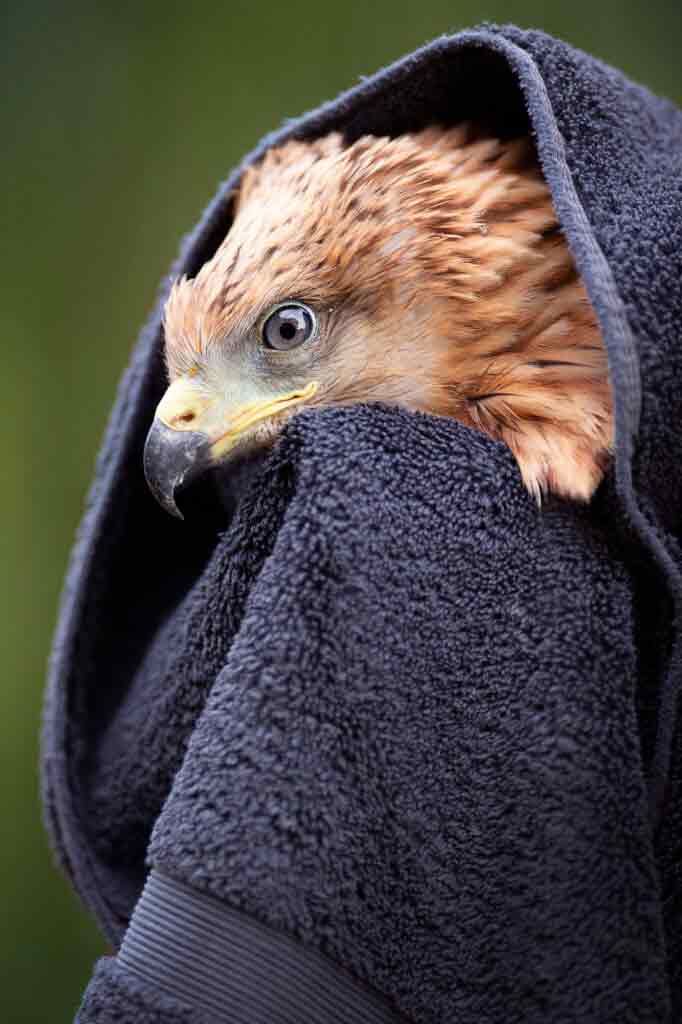
We have seen a few fledgling birds of prey this year that just seem to get a little insecure about flying, when initial flights haven’t quite gone to plan and we suspect this was the case for Mr Kite. Once he had the time and space, he eventually took his first flight and then could be seen regularly flying up to perches to collect his food, as well as showing a lot more attitude during his flight tests.
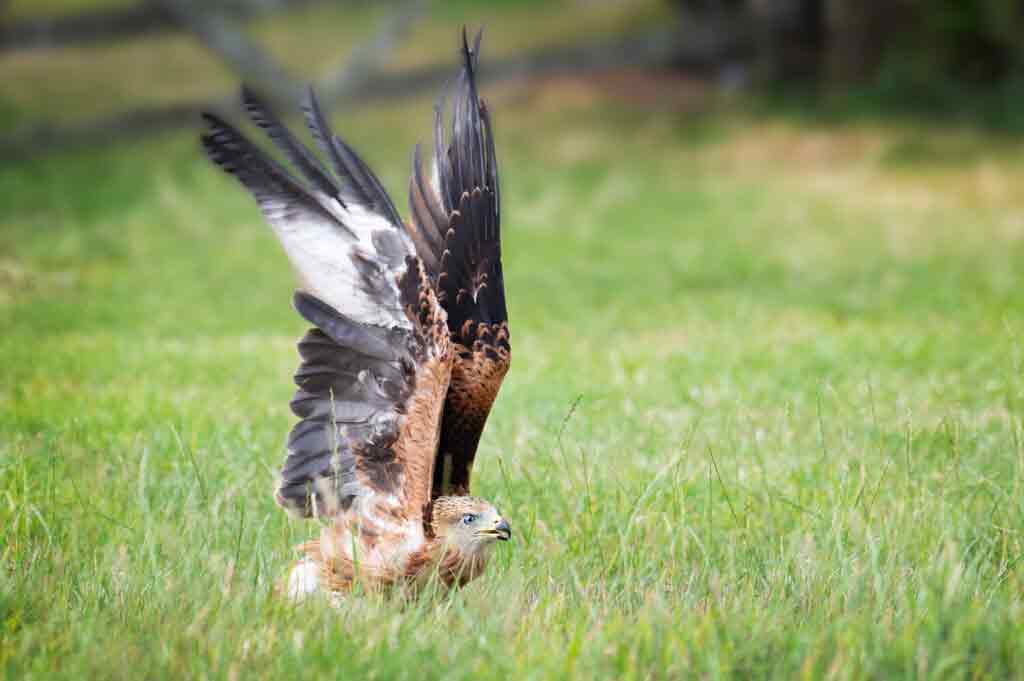
So after 24 days in care and a final flight check, marvellous Mr Kite, was given the opportunity to fly free!
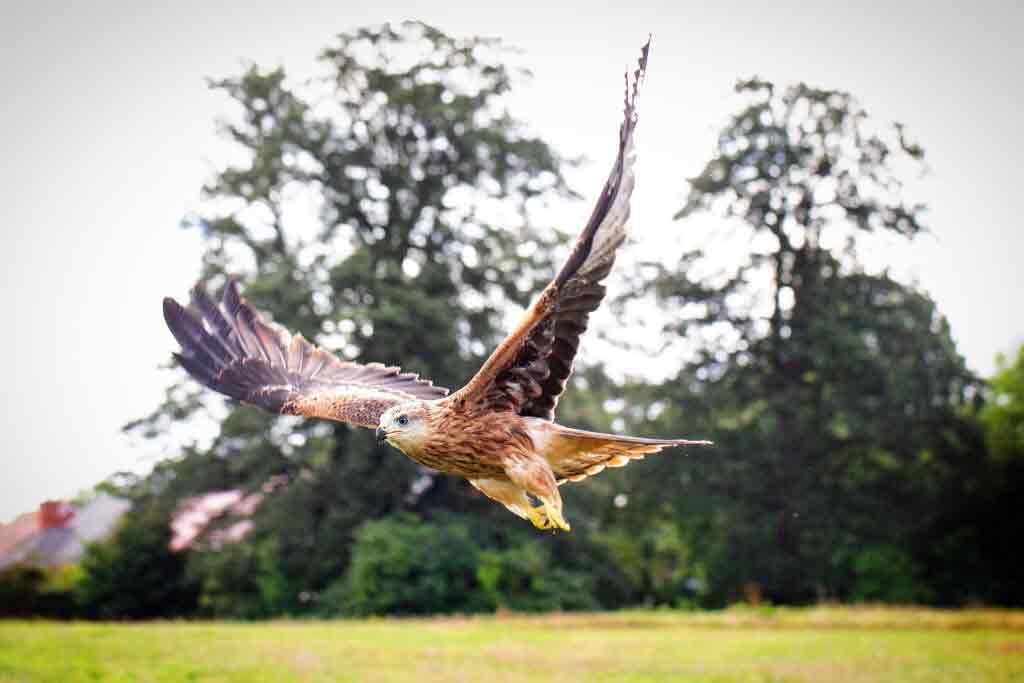
When you donate you help towards the costs of looking after all the animals here at the hospital.
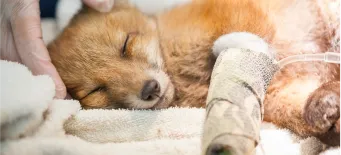
Could provide medicine for a sick animal
